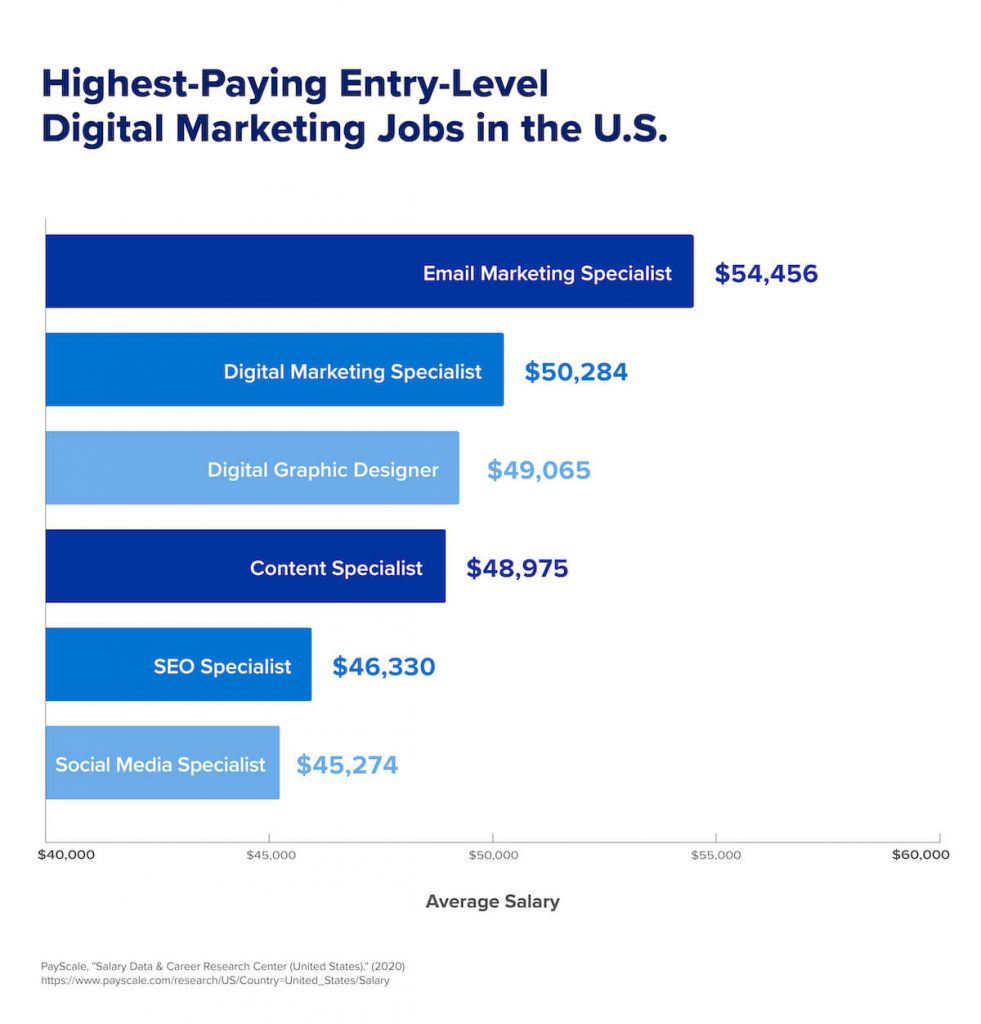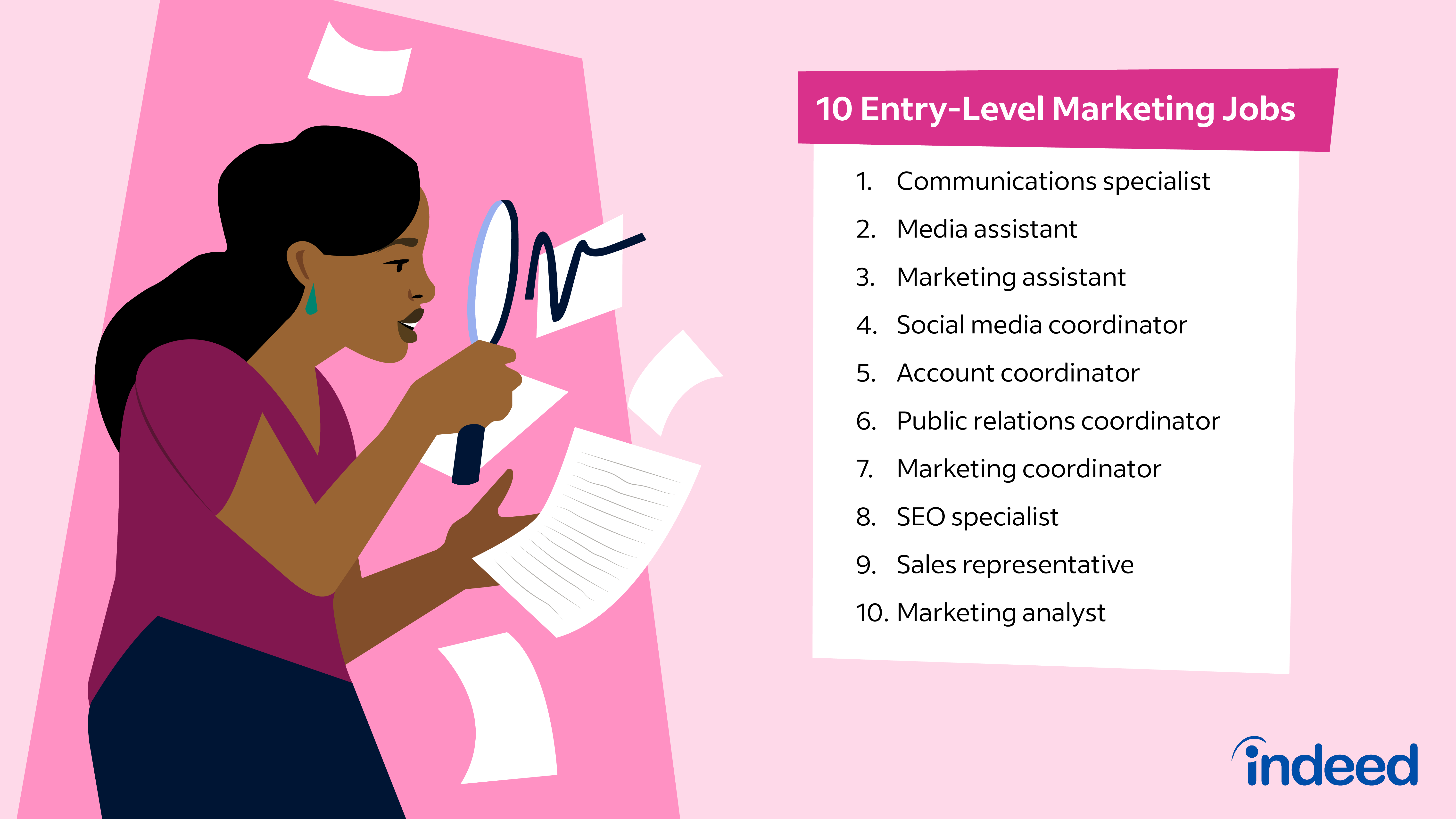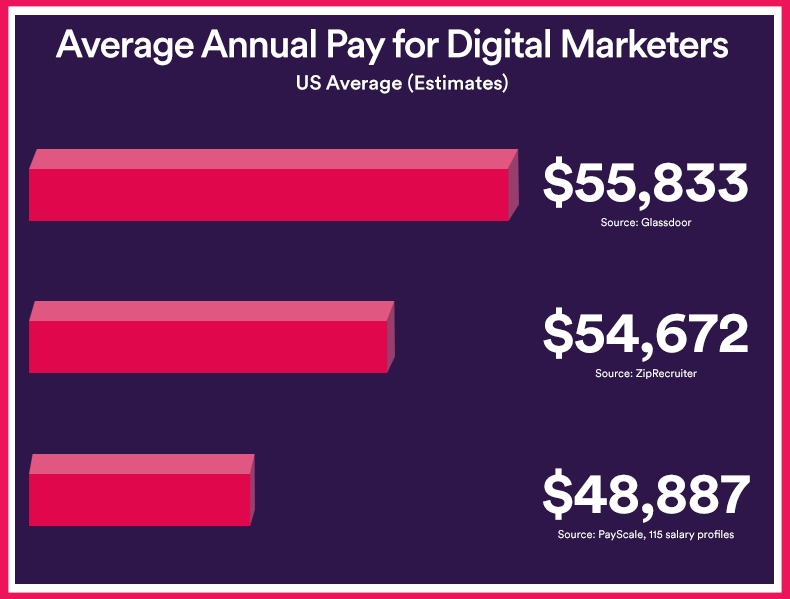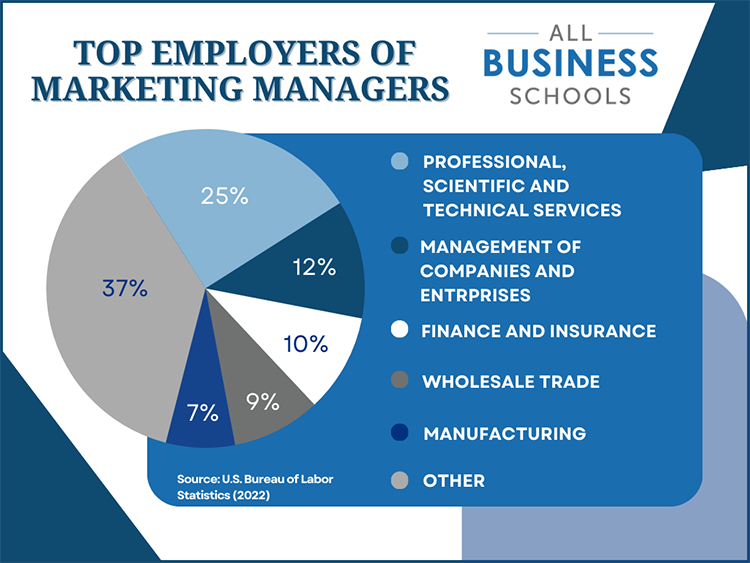- What is a Typical Starting Salary Range Out of a Marketing Bachelor's Program?
- What is a good starting salary after bachelors?
- What is the highest entry-level marketing salary?
- What is an entry-level marketing position?
- How much should I get paid for marketing?
-
Frequently Asked Questions from Our Community
- What is the typical starting salary range for graduates with a Marketing bachelor's degree?
- How does the starting salary for Marketing graduates compare to other business-related fields?
- What factors influence the starting salary for Marketing bachelor's graduates?
- Can internships or work experience during college impact starting salaries in Marketing?
Entering the workforce with a bachelor’s degree in marketing opens doors to a variety of career opportunities, but one of the most common questions graduates have is about starting salaries. The typical salary range for marketing graduates can vary significantly depending on factors such as location, industry, and level of experience. On average, entry-level marketing roles offer salaries that reflect the growing demand for skilled professionals in this dynamic field. Understanding the financial expectations early on can help graduates make informed decisions about their career paths and negotiate competitive compensation as they step into the professional world.
What is a Typical Starting Salary Range Out of a Marketing Bachelor's Program?
Graduates with a Marketing bachelor's degree often enter a dynamic and competitive job market. The starting salary range can vary significantly depending on factors such as geographic location, industry, company size, and specific job role. On average, entry-level marketing professionals can expect to earn between $40,000 and $60,000 annually. However, this range can fluctuate based on the demand for marketing skills in a particular region or sector.
See Also Over a Year Has Passed Since the Marketing Job Interview...
Over a Year Has Passed Since the Marketing Job Interview...Factors Influencing Starting Salaries in Marketing
Several factors influence the starting salary for marketing graduates. Geographic location plays a significant role, as salaries tend to be higher in metropolitan areas with a higher cost of living. Additionally, the industry you choose can impact your earnings. For example, marketing roles in technology or finance often offer higher starting salaries compared to non-profit organizations. Lastly, the specific job role and level of responsibility also determine compensation.
Entry-Level Marketing Roles and Their Salaries
Entry-level marketing roles vary widely, and so do their salaries. Below is a table showcasing common positions and their typical starting salaries:
See Also How Do I Get Better at Writing Social Media Copy?
How Do I Get Better at Writing Social Media Copy?| Job Role | Starting Salary Range |
|---|---|
| Marketing Coordinator | $40,000 - $50,000 |
| Social Media Specialist | $38,000 - $48,000 |
| Market Research Analyst | $45,000 - $55,000 |
| Content Marketing Specialist | $42,000 - $52,000 |
| Digital Marketing Assistant | $40,000 - $50,000 |
How Geographic Location Affects Marketing Salaries
Geographic location is one of the most significant factors affecting starting salaries. For instance, marketing professionals in New York City or San Francisco may earn 10-20% more than those in smaller cities or rural areas. This is due to the higher cost of living and the concentration of large corporations in these regions. Conversely, starting salaries in smaller towns or less competitive markets may fall on the lower end of the range.
The Role of Industry in Determining Marketing Salaries
The industry you work in can greatly influence your starting salary. Marketing roles in technology, finance, and healthcare typically offer higher compensation due to the complexity and profitability of these sectors. On the other hand, roles in education or non-profits may offer lower starting salaries but often come with other benefits like work-life balance or mission-driven work.
See Also What Are the Main Skills for a Brand Strategist?
What Are the Main Skills for a Brand Strategist?Skills That Can Boost Your Starting Salary in Marketing
Certain skills can significantly enhance your earning potential as a marketing graduate. Proficiency in digital marketing tools, data analytics, and SEO/SEM are highly sought after. Additionally, strong communication skills and the ability to work with cross-functional teams can make you a more competitive candidate. Below is a table highlighting key skills and their impact on salary:
| Skill | Impact on Salary |
|---|---|
| Digital Marketing | +10-15% |
| Data Analytics | +10-20% |
| SEO/SEM | +5-10% |
| Content Creation | +5-10% |
| Project Management | +10-15% |
What is a good starting salary after bachelors?

 I'm Looking to Hire a Marketing Manager, but Want to Avoid Marketing Gurus.
I'm Looking to Hire a Marketing Manager, but Want to Avoid Marketing Gurus.What Factors Determine a Good Starting Salary After a Bachelor's Degree?
A good starting salary after earning a bachelor's degree depends on several factors, including:
- Field of Study: Degrees in STEM (Science, Technology, Engineering, Mathematics) or business often command higher starting salaries compared to liberal arts or social sciences.
- Geographic Location: Salaries vary significantly based on the cost of living and demand for specific roles in different regions.
- Industry Demand: High-demand industries like technology, healthcare, and finance typically offer more competitive salaries.
- Experience and Internships: Relevant work experience or internships during college can increase earning potential.
- University Reputation: Graduates from prestigious institutions may secure higher starting salaries due to perceived quality of education.
What Are the Average Starting Salaries by Major?
The average starting salary after a bachelor's degree varies widely by major. Here are some examples:
- Engineering: $70,000 - $85,000 per year, depending on specialization (e.g., software, mechanical, or civil engineering).
- Computer Science: $65,000 - $80,000 annually, with higher salaries in tech hubs like Silicon Valley.
- Business Administration: $50,000 - $65,000 per year, with potential for higher earnings in finance or consulting roles.
- Nursing: $55,000 - $70,000 annually, reflecting the high demand for healthcare professionals.
- Liberal Arts: $40,000 - $55,000 per year, though salaries can increase with advanced degrees or specialized skills.
How Does Location Impact Starting Salaries?
Geographic location plays a significant role in determining starting salaries after a bachelor's degree:
- High-Cost Cities: Cities like New York, San Francisco, or Seattle offer higher salaries to offset the cost of living.
- Rural Areas: Salaries in rural areas may be lower but often come with a lower cost of living.
- Regional Demand: Areas with a high concentration of specific industries (e.g., tech in Austin or finance in Chicago) may offer competitive salaries.
- State Variations: States with higher minimum wages or stronger labor markets tend to offer better starting salaries.
- Remote Work: Remote roles may adjust salaries based on the employee's location, offering flexibility but potentially lower pay in some cases.
What Role Does Industry Play in Starting Salaries?
The industry you enter after graduation significantly impacts your starting salary:
- Technology: Offers some of the highest starting salaries, especially for roles in software development or data analysis.
- Healthcare: High demand for professionals in nursing, pharmacy, and medical technology drives competitive salaries.
- Finance: Roles in investment banking, financial analysis, or consulting often come with lucrative starting packages.
- Education: Starting salaries for teachers or academic roles may be lower but often include benefits like pensions.
- Creative Industries: Fields like graphic design or media may offer lower starting salaries but provide opportunities for growth.
How Can You Negotiate a Better Starting Salary?
Negotiating a better starting salary requires preparation and strategy:
- Research Market Rates: Use tools like Glassdoor or Payscale to understand the average salary for your role and location.
- Highlight Skills and Experience: Emphasize internships, certifications, or relevant coursework that add value to your profile.
- Leverage Multiple Offers: Having competing job offers can strengthen your negotiating position.
- Consider Total Compensation: Look beyond base salary to include benefits like bonuses, stock options, or retirement plans.
- Practice Negotiation: Role-play salary discussions with a mentor or friend to build confidence and refine your approach.
What is the highest entry-level marketing salary?

What Factors Influence Entry-Level Marketing Salaries?
Several factors determine the highest entry-level marketing salary, including:
- Industry: Sectors like technology, finance, and healthcare often offer higher salaries compared to non-profit or retail.
- Location: Cities with a high cost of living, such as New York or San Francisco, typically provide higher salaries.
- Company Size: Larger corporations tend to offer more competitive salaries than small businesses.
- Education and Skills: Candidates with advanced degrees or certifications in digital marketing, data analytics, or SEO may command higher pay.
What Are the Highest-Paying Entry-Level Marketing Roles?
Some of the highest-paying entry-level marketing roles include:
- Digital Marketing Specialist: Focuses on online campaigns, SEO, and social media strategies.
- Marketing Analyst: Analyzes market trends and consumer behavior to guide marketing strategies.
- Product Marketing Manager: Works on positioning and promoting specific products or services.
- Content Marketing Strategist: Develops and manages content to engage target audiences.
How Does Location Affect Entry-Level Marketing Salaries?
Location plays a significant role in determining entry-level marketing salaries:
- High-Cost Cities: Salaries in cities like San Francisco or New York can range from $60,000 to $80,000 annually.
- Mid-Sized Cities: In areas like Austin or Denver, salaries typically range from $45,000 to $60,000.
- Rural Areas: Salaries may be lower, often between $35,000 and $50,000, due to lower living costs.
What Skills Can Increase an Entry-Level Marketing Salary?
Developing specific skills can significantly boost your entry-level marketing salary:
- Data Analytics: Proficiency in tools like Google Analytics or Tableau is highly valued.
- SEO and SEM: Expertise in search engine optimization and marketing can lead to higher pay.
- Social Media Management: Skills in managing platforms like Instagram, LinkedIn, and TikTok are in demand.
- Content Creation: Ability to produce high-quality written and visual content is a plus.
What Are the Salary Expectations for Entry-Level Marketing Jobs?
Salary expectations for entry-level marketing jobs vary widely:
- National Average: In the U.S., the average salary ranges from $40,000 to $60,000 annually.
- Top-Tier Companies: Firms like Google or Amazon may offer salaries upwards of $70,000 for entry-level roles.
- Startups: While startups may offer lower base salaries, they often provide equity or bonuses.
What is an entry-level marketing position?

What is an Entry-Level Marketing Position?
An entry-level marketing position is a role designed for individuals who are new to the marketing industry or have limited professional experience. These positions typically involve foundational tasks that help support broader marketing campaigns and strategies. Entry-level roles are crucial for gaining hands-on experience, developing skills, and understanding the dynamics of marketing operations within a company.
Key Responsibilities in an Entry-Level Marketing Role
In an entry-level marketing position, employees are often tasked with a variety of responsibilities that contribute to the overall marketing efforts of a company. These tasks may include:
- Assisting in the creation and execution of marketing campaigns.
- Conducting market research to gather insights and data.
- Managing social media accounts and creating content.
- Supporting the development of marketing materials such as brochures, emails, and presentations.
- Tracking and analyzing campaign performance metrics.
Skills Required for Entry-Level Marketing Jobs
To succeed in an entry-level marketing position, certain skills are essential. These include:
- Communication skills for effective collaboration and content creation.
- Analytical abilities to interpret data and measure campaign success.
- Creativity to develop engaging marketing materials and ideas.
- Technical proficiency in tools like Google Analytics, social media platforms, and Microsoft Office.
- Time management to handle multiple tasks and meet deadlines.
Common Entry-Level Marketing Job Titles
Entry-level marketing positions come with various job titles, depending on the company and specific role. Some common titles include:
- Marketing Assistant
- Social Media Coordinator
- Content Marketing Specialist
- Digital Marketing Intern
- Market Research Analyst
How to Land an Entry-Level Marketing Position
Securing an entry-level marketing job requires preparation and strategy. Here are some steps to increase your chances:
- Build a strong resume highlighting relevant coursework, internships, or volunteer experience.
- Network with professionals in the industry through events, LinkedIn, or informational interviews.
- Develop a portfolio showcasing marketing projects or campaigns you’ve worked on.
- Apply to job postings on company websites, job boards, and LinkedIn.
- Prepare for interviews by researching the company and practicing common marketing-related questions.
How much should I get paid for marketing?

Factors Influencing Marketing Salaries
The amount you should get paid for marketing depends on several factors. These include your level of experience, the industry you work in, the size of the company, and your geographic location. For example, marketing professionals in large metropolitan areas often earn more than those in smaller towns. Additionally, specialized skills such as digital marketing, data analytics, or SEO expertise can significantly increase your earning potential.
- Experience: Entry-level marketers typically earn less than those with 5+ years of experience.
- Industry: High-demand industries like tech or finance often pay higher salaries.
- Location: Salaries vary widely based on the cost of living in your area.
Average Marketing Salaries by Role
Marketing salaries vary depending on the specific role you hold. For instance, a social media manager might earn less than a marketing director. According to recent data, the average salary for a marketing coordinator is around $50,000 per year, while a marketing manager can earn between $70,000 and $100,000 annually. Higher-level positions like Chief Marketing Officer (CMO) can command salaries well over $150,000.
- Marketing Coordinator: $45,000 - $55,000 per year.
- Marketing Manager: $70,000 - $100,000 per year.
- Chief Marketing Officer (CMO): $150,000+ per year.
How Specialization Affects Pay
Specializing in a particular area of marketing can significantly impact your salary. For example, professionals with expertise in digital marketing, content strategy, or data-driven marketing often earn more than generalists. Certifications in tools like Google Analytics or HubSpot can also boost your earning potential. Specialized roles such as SEO specialists or PPC managers are in high demand and typically offer competitive salaries.
- Digital Marketing: $60,000 - $90,000 per year.
- SEO Specialist: $50,000 - $80,000 per year.
- PPC Manager: $55,000 - $85,000 per year.
Freelance vs. Full-Time Marketing Salaries
Freelance marketers often charge hourly rates or project-based fees, which can vary widely. On average, freelance marketers charge between $50 and $150 per hour, depending on their expertise and the complexity of the project. Full-time marketers, on the other hand, receive a fixed salary along with benefits like health insurance and retirement plans. Freelancing offers flexibility but lacks the stability of a full-time position.
- Freelance Hourly Rate: $50 - $150 per hour.
- Full-Time Benefits: Health insurance, retirement plans, and paid leave.
- Project-Based Fees: $1,000 - $10,000+ per project.
Negotiating Your Marketing Salary
Negotiating your salary is a critical step in ensuring you are paid fairly. Research industry standards for your role and location, and be prepared to discuss your qualifications and achievements. Highlight any certifications, successful campaigns, or measurable results you’ve achieved. Employers are often willing to negotiate, especially if you bring unique skills or a proven track record to the table.
- Research: Use salary comparison tools like Glassdoor or Payscale.
- Highlight Achievements: Showcase successful campaigns or certifications.
- Be Confident: Clearly articulate your value to the company.
Frequently Asked Questions from Our Community
What is the typical starting salary range for graduates with a Marketing bachelor's degree?
The typical starting salary range for graduates with a Marketing bachelor's degree generally falls between $40,000 and $55,000 per year. However, this range can vary depending on factors such as geographic location, the industry you enter, and the size of the company. For example, marketing roles in major metropolitan areas or within competitive industries like technology or finance may offer higher starting salaries compared to smaller cities or less competitive sectors.
Compared to other business-related fields, such as Finance or Accounting, the starting salary for Marketing graduates is often slightly lower. While Finance and Accounting roles may start at $50,000 to $65,000, Marketing roles typically begin at $40,000 to $55,000. However, Marketing offers significant growth potential and opportunities for advancement, especially in areas like digital marketing, brand management, and market research.
What factors influence the starting salary for Marketing bachelor's graduates?
Several factors influence the starting salary for Marketing bachelor's graduates, including geographic location, industry demand, company size, and specialization. For instance, graduates working in urban areas or for large corporations often earn more than those in rural areas or smaller companies. Additionally, specialized skills in areas like data analytics, SEO, or social media marketing can command higher salaries due to their high demand in the job market.
Can internships or work experience during college impact starting salaries in Marketing?
Yes, internships and work experience during college can significantly impact starting salaries in Marketing. Graduates with relevant internship experience or part-time work in marketing roles are often viewed as more competitive candidates and may negotiate higher starting salaries. Employers value practical experience, as it demonstrates a candidate's ability to apply theoretical knowledge in real-world scenarios, making them more likely to contribute effectively from day one.
Leave a Reply


Articles of interest